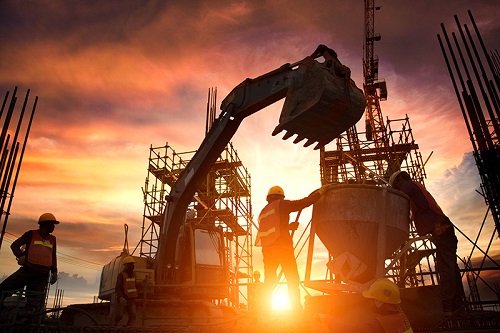 Wednesday, May 8, 2024
Wednesday, May 8, 2024  Wednesday, May 8, 2024
Wednesday, May 8, 2024 
Civilizations are envisioned by brilliant minds and built by hardworking hands of labourers. However, social problems of the past continue to manifest in construction and materials acquisition industry.
This topic has escaped the attention of people in power, and accountability in any form is swept under the rug.
Fortunately, investors have joined forces to address the issue of modern-day slavery. The UK-based investor coalition said it now had 56 investors among its members – including M&G, Fidelity International, Schroders and Edentree – that together manage 7 trillion pounds ($9.6 trillion) in assets.
Background and scrutiny on modern-day slavery
Modern slavery is an umbrella term encompassing slavery, servitude, forced or compulsory labour and human trafficking. Victims of modern slavery are unable to leave their situation of exploitation, controlled by threats, punishment, violence, coercion and deception. Slavery violates human rights, denying people of their right to life, freedom and security.
People from developing countries are trying their luck by rendering services in the construction industry. They are capitalizing on their physical strength and fortitude of their spirit.
However, such is not always a success story as some have met an ill-fate. They are taken advantage with low compensation and back-breaking tasks.
“Labour exploitation highlights the worst traits of the human race. It promotes the misery of the vulnerable in order to maximise the profits of the few. The construction sector recognises this and through the power of collaboration, the supply chain school has managed to harness the more positive aspects of the human spirit in terms of working together and tries passionately and in earnest to help individuals and organisations make a difference no matter how big or small,” Helen Carter, Sustainable Procurement Consultant, Supply Chain Sustainability School and Action Sustainability, stated.
There are still individuals out there who look out to these horrible conditions and implement positive changes. Although, in some cases, it is but a late news.
Case study on Qatar’s Khalifa Stadium
A conservative number of 6,000 deaths are estimated on how many migrant workers have lost their lives being a part of being one of Qatar’s milestones in construction.
With its ambitious implementation of modern amenities and world-class engineering principles, Khalifa stadium is indeed a sight to behold.

The chart above illustrates the death toll of migrant workers. This is not an isolated case, as others have shared sub-par quality of living while working there.
“I am fed up with living here,” said PAWAN, a Nepalese national who worked on Khalifa Stadium project. “All I want is to be paid on time and to be treated with respect. But my company did not pay me for four months when I first came to Qatar and the salary is much less than what I agreed to [in Nepal].”
Since arriving in Qatar, Pawan has been housed in cramped and unhygienic accommodation (which Amnesty International researchers saw during a visit in May 2015).
This inhumane condition is not just a topic discussed in history class tackling medieval times, this is a modern-day slavery story that needs a closer look.
Why does it escape inspection?
“Many companies think of modern slavery as an aberration from the norm. In reality, it’s often a systemic issue embedded within everyday operational processes and in a company’s relationship with external suppliers. That’s why it’s essential that organisations develop clear processes and guidance on human rights and undertake effective due diligence. We need to enable staff at all levels of the organization to understand the risks of modern slavery, how it manifests itself and empower them to take responsibility to prevent it,” declared Neill Wilkins, Programme Manager – Migrant Workers and Work With Dignity, Institute for Human Rights and Business.
Although we live in a modern world with significant privileges from previous generations, we have not yet relinquished the dark side of the past on slavery when it means higher profit and unchecked accountability.
This systemic oppression is being paid in blood, painted in the colors of outstanding facade, and walk on by individuals whose pathways are paved by modern-day slaves.
About CCLA Investment Management
CCLA is one of the UK’s largest charity fund managers according to the latest Charity Finance Survey. Managing investments for charities, religious organisations and the public sector is all we do. Based in the City of London, with an office in Edinburgh, we are largely owned by our clients’ funds.
About The Independent Anti-Slavery Commissioner
Part 4 of the Modern Slavery Act 2015 created the role of the Independent Anti-Slavery Commissioner. The Commissioner has a UK-wide remit to encourage good practice in the prevention, detection, investigation and prosecution of modern slavery offences and the identification of victims.
www.antislaverycommissioner.uk